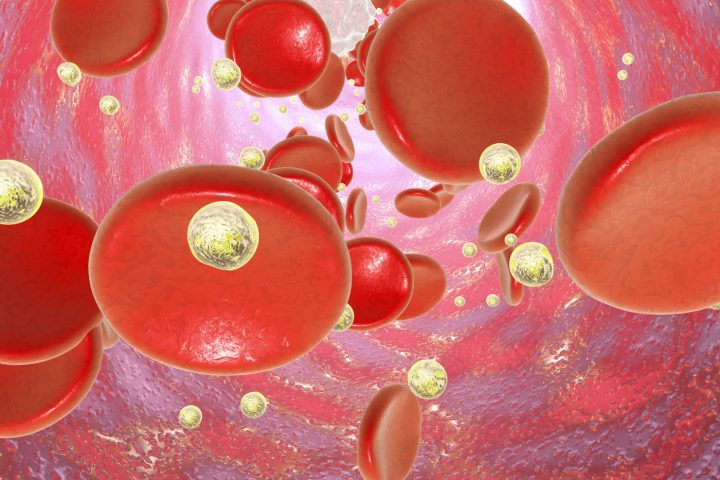FAQs About Hemophilia

Receiving a hemophilia diagnosis can leave patients and their caregivers with many unanswered questions about the disease. Many want to know how to find information, connect with other patients and families, and get support.
Here are answers to some frequently asked questions about hemophilia:
What is hemophilia?
Hemophilia is an inherited bleeding disorder caused by little or no clotting factor in the blood. Clotting factors are proteins that are vital to stop bleeding when it occurs. Deficiency of clotting factors results in prolonged bleeding.
What are the different types of hemophilia?
There are several types of clotting factor. Based on the clotting factor affected, there are three main types of hemophilia:
- Hemophilia A is caused by missing or defective clotting factor VIII
- Hemophilia B is caused by the deficiency of clotting factor IX
- Hemophilia C is caused by the defective or missing clotting factor XI
What is acquired hemophilia?
Acquired hemophilia is a rare type of autoimmune condition in which the body mistakenly attacks its own clotting factors. It usually develops later in life and often resolves with proper treatment.
How is hemophilia inherited?
Humans have 22 pairs of chromosomes called the autosomes that are identical in men and women. One pair of chromosomes, called the sex chromosome, determines a person’s gender.
The inheritance pattern of hemophilia depends on which chromosome the affected gene is located on.
The genes affected in hemophilia A and B are located on the X-chromosome. Therefore, they are inherited in an X-linked pattern. Men are at a higher risk of developing hemophilia A and B because they only have one X chromosome.
Hemophilia C is caused by a mutation in a gene located on chromosome 4, an autosome. Therefore, both men and women have the same risk of inheriting the mutation and being affected by hemophilia C.
What is the life expectancy?
The life expectancy of people with hemophilia depends on the severity of the condition and whether or not the patient receives adequate treatment. With proper care, the life expectancy of people with hemophilia is about 10 years less than those without the disease.
What are the symptoms?
The most common symptoms of hemophilia are excessive bleeding and easy bruising due to internal bleeding. Bleeding can affect different parts of the body and can be seen as:
- Frequent nose bleeds
- Heavy bleeding after an injury
- Large bruises
- Blood in the urine and stool due to kidney, bladder, or intestinal bleeding
- Bleeding in the joints, causing joint tightness with or without pain
- Bleeding in the brain, known as brain hemorrhage or brain stroke, which can cause headache, vomiting, stiff neck, blurred vision, and loss of muscle coordination.
The type and severity of the symptoms vary from person to person.
How is hemophilia diagnosed
Hemophilia is diagnosed using a blood test to measure the levels of clotting factors and their activity in the blood.
Prenatal genetic testing can help diagnose hemophilia in cases in which parents are known to be carriers of the condition. Chorionic villus sampling can be done between nine and 11 weeks of pregnancy, and fetal blood sampling at 19 weeks or more.
How is hemophilia treated
The primary treatment for hemophilia is replacement therapy, in which the missing clotting factor is administered to the body through injection. Other approved treatments include hormone therapy — such as desmopressin — that stimulate the production of clotting factors and bypassing agents in cases in which the body develops antibodies against clotting factors. Several experimental treatments also are under evaluation.
Can hemophilia be cured?
There currently is no cure for hemophilia. However, the condition can be managed effectively with proper treatment.
How is the severity of hemophilia determined?
The level of clotting factor in the blood determines the severity of hemophilia. The lower the levels, the more severe the condition.
- In mild hemophilia, clotting factor levels are between 5% and 40% (0.05-0.40 IU/ml).
- In moderate hemophilia, clotting factor levels are between 1% and 5% (0.01-0.05 IU/ml).
- In severe hemophilia, clotting factor levels are less than 1% (0.01 IU/ml).
The rate of bleeding differs based on the severity of the condition. People with severe hemophilia bleed frequently and for no specific reason. Those with moderate hemophilia bleed less frequently and spontaneously and usually only as a result of injury. In cases of mild hemophilia, excessive bleeding usually occurs only as a result of surgery or a major injury.
Is hemophilia contagious?
No. Hemophilia is an inherited condition and cannot be spread through physical contact.
Are there any medication that patients should avoid?
People with hemophilia should not take aspirin or any other blood thinner. Aspirin prevents blood cells called platelets from clumping together and forming blood clots. It can make bleeding worse in hemophilia patients.
Is it safe to exercise?
Sports and exercise can help strengthen the muscles and prevent bleeding. Therefore, individuals with hemophilia are encouraged to incorporate frequent exercise in their routine. Sports with a high risk of injuries, such as boxing, football, or rugby are not recommended, however. People with hemophilia should consider the severity of their disease when planning their exercise routine and choosing a sport.
Where can I find more information?
Comprehensive information about hemophilia and its different treatment options, as well as news about research and ongoing clinical trials, can be found on our website.
Information about support groups can be found at Hemaware and The Hemophilia Society.
Additional information can be found on the website of the following organizations:
National Hemophilia Foundation
Hemophilia Federation of America
World Federation of Hemophilia
Last updated: Sept. 30, 2019
***
Hemophilia News Today is strictly a news and information website about the disease. It does not provide medical advice, diagnosis, or treatment. This content is not intended to be a substitute for professional medical advice, diagnosis, or treatment. Always seek the advice of your physician or other qualified healthcare providers with any questions you may have regarding a medical condition. Never disregard professional medical advice or delay in seeking it because of something you have read on this website.






